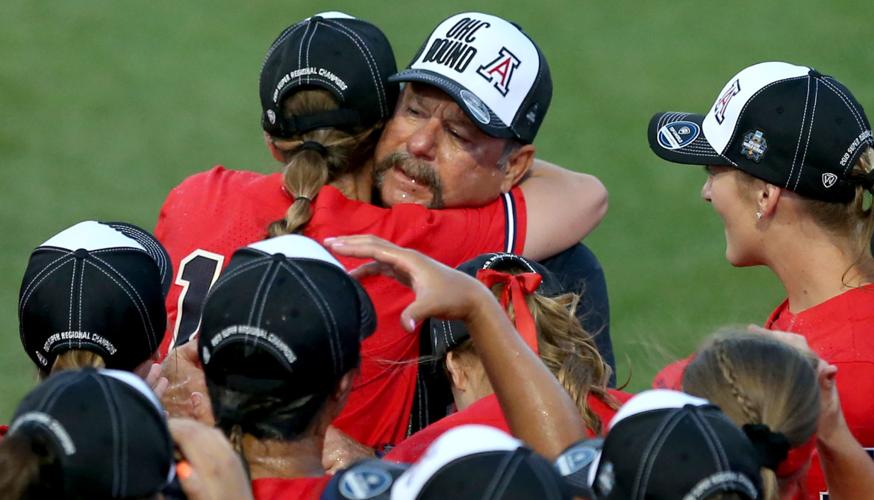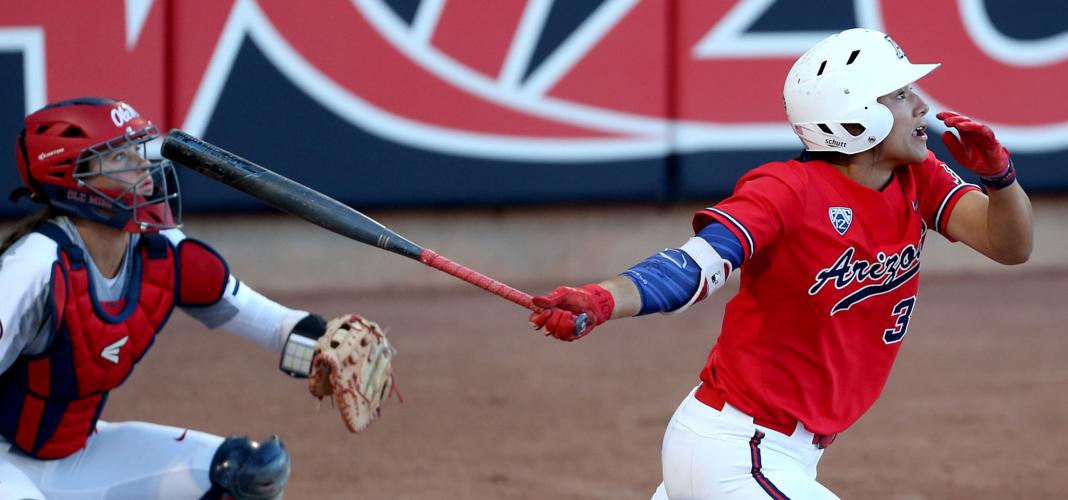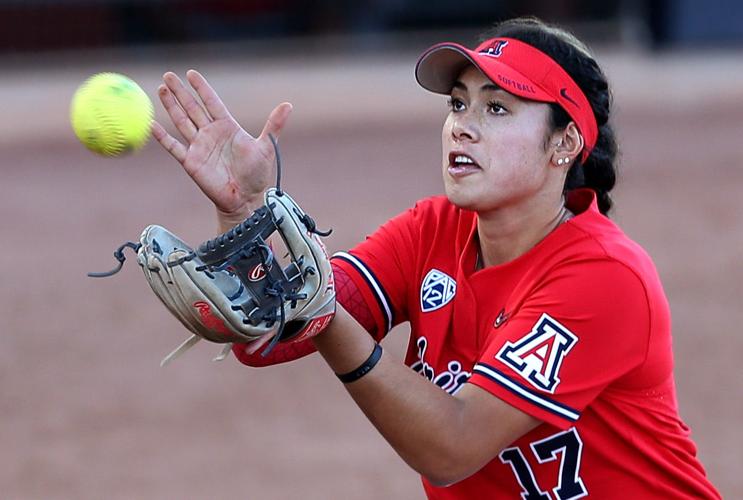In the final moments before every softball game at Hillenbrand Stadium since 1993, someone in the press box taps a button that plays “Palomita De Ojos Negros.”
It’s a Linda Ronstadt song that’s as much a part of the UA softball tradition as a Jennie Finch no-hitter.
Ronstadt’s lyrics talk about a little white dove that “stops by my window to tell me her sorrows.”
Startled by the ringing of nearby church bells, the dove flies away. Ronstadt sings, “I did not get to tell her that her troubles were just like mine.”
For the last eight years, that song about a little white dove on the windowsill has come to epitomize Arizona softball in ways no one could’ve imagined at the 2010 Women’s College World Series.
Whether you want to call them sorrows or troubles, the record shows Mike Candrea took the blows.
The UA’s softball juggernaut, for 20 years the most feared and admired program in college softball, could no longer win The Big One. It had become an uncomfortable topic to the man who, step by step, delivered college softball to an unprecedented platform and into public consciousness from 1990-2010.
So when the Wildcats beat Ole Miss on Saturday, qualifying for the World Series for the first time since 2010, the stage belonged to Candrea. He sat next to star catcher Dejah Mulipola as she said “we finally broke the curse,” but Candrea didn’t talk about curses or redemption or any of the dove-on-the-windowsill sorrows.
“It’s sweet,” he said, “because now I won’t have to answer that any more.”
Candrea’s most telling line, reflecting on his 34-year journey as Arizona’s softball coach and 22 trips to the World Series, was that “for some time, we made it look quite easy.”
Easy is no longer a word that applies in college softball. It has become a game relative to that old TV commercial about the PGA Tour — “These guys are good.”
In softball terms, Candrea is among those who “created a monster,” growing the game, helping to trigger rapid advancement at the grassroots level of softball, one that has turned the college game into scores of NCAA Tournament-worthy programs everywhere.
What seemed to bother Candrea more than the 0-for-8 streak listed on his coaching ledger, is that for eight years he couldn’t take dozens of his ballplayers to Oklahoma City to experience the sense of achievement and completeness.
“The frustrating part as a coach,” he said, “was not giving (my players) that opportunity.”
It didn’t make it all about Mike Candrea, and that’s when you know you’ve got the right guy running the show.
We’ll probably never know how much Arizona’s time away from OKC ate at the coach. About the only glimpse of what Saturday’s game meant to him was in the bottom of the seventh inning, when the Wildcats led 9-1 and an overflow crowd of 2,835 stood, cheering loudly, waiting to blow off eight years of steam.
Candrea stood alone near the south end of the UA’s first-base dugout. After each of Alyssa Denham’s pitches, Candrea paced 10 or 15 yards to the dugout wall, then back to his coaching station. Denham needed 11 pitches to close out the Rebels; Candrea paced to the wall and back 11 times.
And it was 9-1.
When Abbey Latham grounded out to second base to end the game, Candrea pumped both fists and was immediately embraced by Stacy Iveson, who has been part of Arizona’s softball program for 16 years, rejoining her former coach in 2011, at the beginning of the 0-for-8 streak.
Together, Candrea and Iveson experienced some monumental misfortune just when Arizona appeared primed to extend its stay at the top of the game.
In 2010, freshman pitcher Kenzie Fowler, twice the national Gatorade Player of the Year, pitched Arizona to the national championship game. She went 38-9 with a 1.53 ERA.
She was set to be the next Finch, the next Alicia Hollowell, the next Nancy Evans and Taryne Mowatt all in one.
But Fowler was injured several times, sat out a full season and couldn’t recapture her brilliance. She gave it a final shot in 2014, but by then that little white dove had spent a lot of time on her windowsill, too.
It corresponded to a time the Pac-12 was blessed by three franchise pitchers, ASU’s Dallas Escobedo, Cal’s Jolene Henderson and Oregon’s Cheridan Hawkins. The rise in Pac-12 competition mirrored the growth in college softball.
Arizona had to reinvent itself.
Candrea continued to recruit the nation’s leading pitching prospects — Colorado’s Shelby Babcock, SoCal’s Nancy Bowling, Michelle Floyd and Trish Parks — but for the first time, none could match the pitching chops of rising powers Oregon and ASU, as well as those at established programs UCLA and Washington.
It took eight long years.
As Candrea left Hillenbrand Stadium on Saturday evening, assistant coach Caitlin Lowe, one of the UA’s greatest players, stood in right field chatting with Iveson and Tina Candrea, Mike’s wife.
Lowe was hired in 2012 as part of Candrea’s restoration of a once-grand program. In 2012, Lowe was single and new to coaching. On Saturday night, she celebrated at Hillenbrand with her husband and 3-year-old daughter.
That little white dove is long gone.






